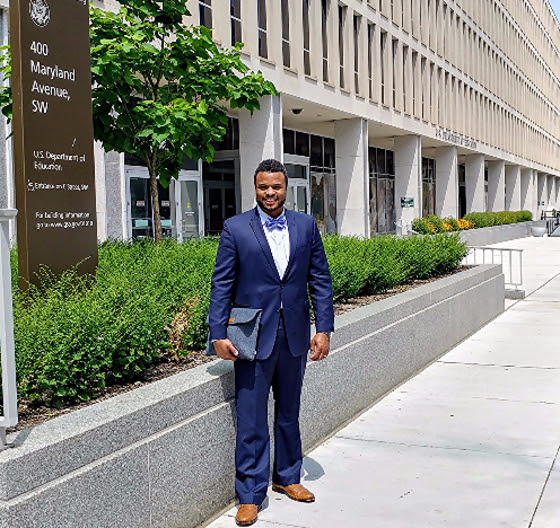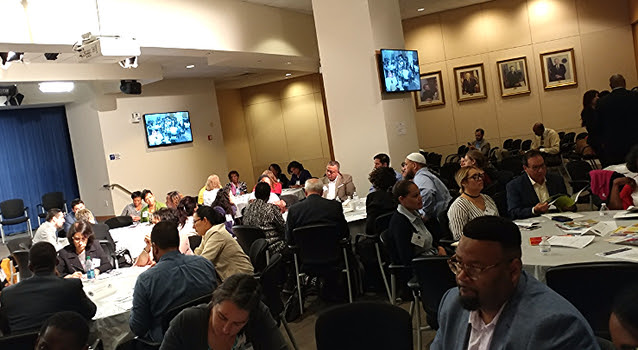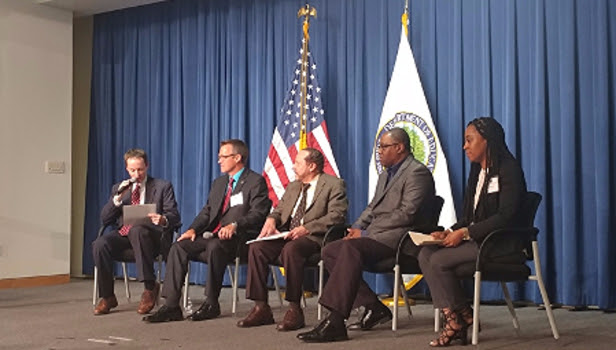Celebrating Fathers in a Fatherless Society
 Happy Monday!
Happy Monday!
Yesterday was Father’s Day. I am grateful for my father. He has always been fully present in my seven siblings’ and my life. We certainly credit his involvement, as well as mom’s participation for any good that we have experienced.
Thank God for parents!
Last week, the U.S. Department of Education convened a group of faith, education, and governmental leaders to discuss the national situation of fathers, families and education. I was humbled to join the conversation on behalf of the National Hispanic Christian Leadership Conferences’ Faith and Education Coalition.

 In our conversation, it was evident that social scientific research and sacred texts agree that fathers are crucial figures in the life and development of children. Indeed, there is an opportunity for private-public partnerships (faith-based and governmental organizations) to address the dismal reality of absent fathers in our society.
In our conversation, it was evident that social scientific research and sacred texts agree that fathers are crucial figures in the life and development of children. Indeed, there is an opportunity for private-public partnerships (faith-based and governmental organizations) to address the dismal reality of absent fathers in our society.
The National Center for Fathering points to our society’s appalling extent of fatherlessness:
More than 20 million children live in a home without the physical presence of a father. Millions more have dads who are physically present, but emotionally absent. If it were classified as a disease, fatherlessness would be an epidemic worthy of attention as a national emergency.
To add to this research, a few years ago Prison Fellowship re-published a very thought-provoking article concerning children with fathers in prison. The article points out, in part:
There are 2.7 million children with a parent in prison or jail. Ninety-five percent (95%) of all inmates will eventually be released. Ninety-two percent (92%) of parents in prison are fathers. Most — 2 out of 3 inmates — will re-offend and be back in prison.
When it comes to fatherhood and prison, we are locking too many dads in jail with little to no help.
Yesterday, I preached the Father’s Day Sermon at Victory Church in Yorktown, Virginia. The title of the sermon was “Rise Up and Walk,” based on Acts 3:1–10.
- The message explained that the Holy Spirit at Pentecost in Acts 2was the Jesus’ name power in Acts 3 that Peter and John offered to the lame man;
- The message challenged men to get up and get moving with their lives in the name of Jesus;
- The message showed how in the text, the lame man needed other men to help him. Peter and John commanded the man to get up and walk and then gave the man a hand up.
They reached out to grab the man’s right hand because in Hebraic tradition, the right hand is the hand of power.
The lame man needed men to empower him to do what they commanded him to do. As a result, the lame man was able to do what he had never been able to do but always wanted to do.
Category: Living the Faith, Spring 2017


